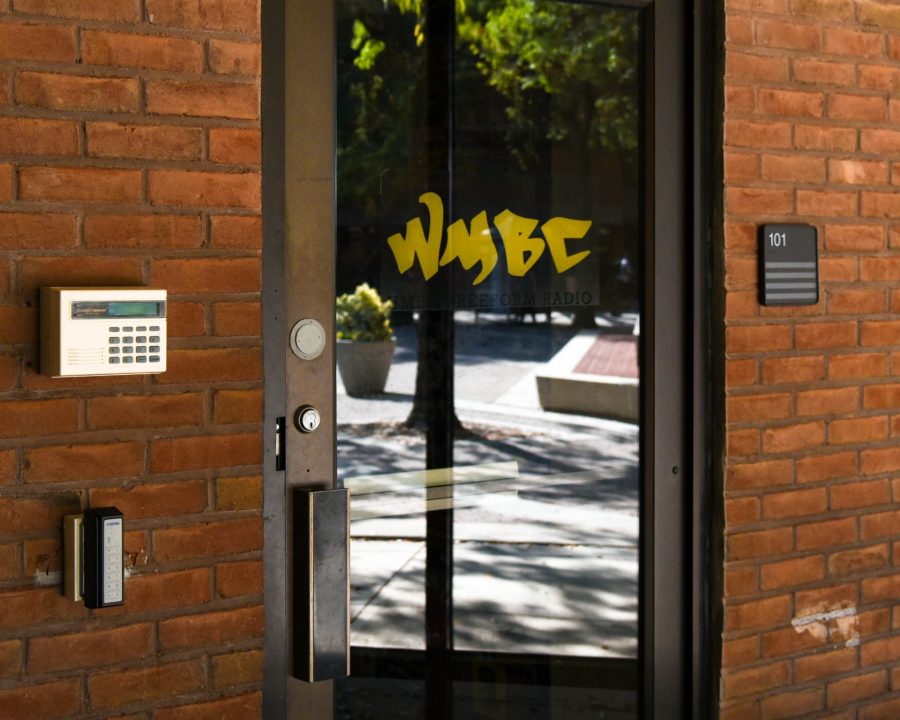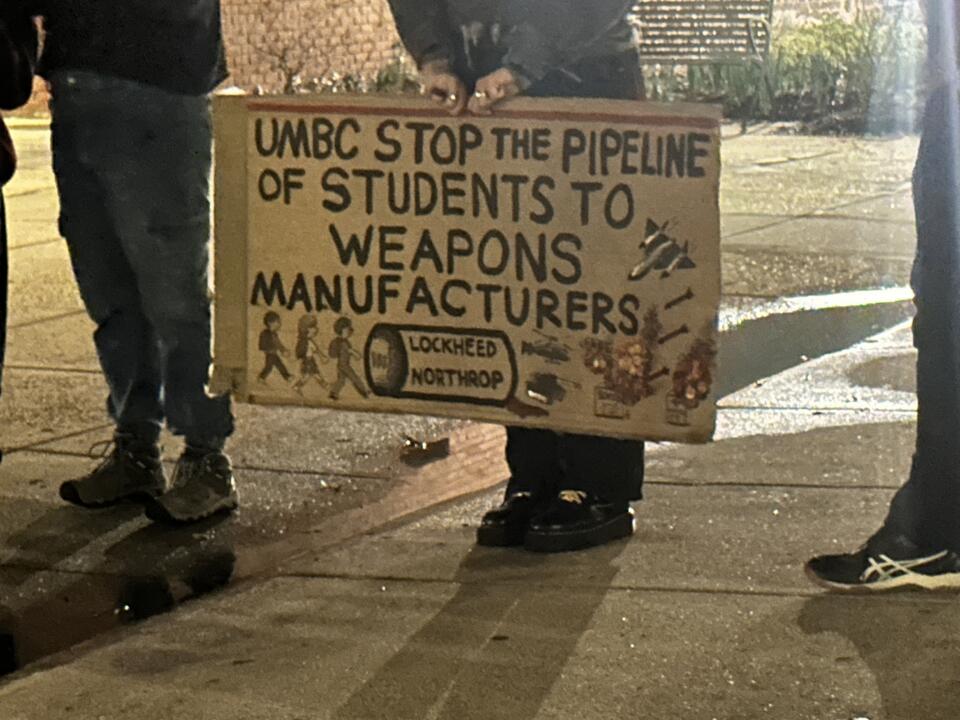Editor’s Note: This article has been updated to reflect new information.
It took 47 years for the University of Maryland, Baltimore County to become the only college campus in Maryland that doesn’t have an operating radio station.
WMBC, the university’s student-run radio station, was founded in 1972 and has continually broadcasted from its little nook in the University Center ever since. The furniture in that nook hasn’t changed since the 80s; it has a room dedicated to thousands of CDs and its doors are covered in bumper stickers. WMBC especially prides itself on its non-profit, uncensored programming, the variety of its DJs and its support of local bands through “New Music Mondays.” But for the past three semesters, that nook has since become empty.
The Retriever spoke with Hunter Newman, a junior majoring in history and WMBC’s station manager, to understand why. Newman joined WMBC as a DJ while she was still a freshman, and was elected as a board member not more than a semester later.
“WMBC owned and managed its own software,” she explained, “so we didn’t need to ask SGA or the school for money [to pay for software and licensing]. In this way, for all of its history, WMBC has operated like a charter organization — like you guys at The Retriever — but never officially.”
According to Newman, in December 2018, the student (now alumna) who created and maintained WMBC’s radio software shut it down and demanded salaried employment in exchange for the reinstatement and maintenance of the software. These details are refuted by the alumna, Nova Devereaux.
Devereaux told The Retriever in an email that she created all the software WMBC used and then licensed it to the station — WMBC never actually owned the software. She additionally wrote that she “neither shut down the software nor did I demand a salary.” Devereaux noted that the software “stopped saving podcasts due to failure to perform routine maintenance over the course of several months,” and in an email communication in February 2019 with Jack Greenman, chief engineer for WMBC at the time, she stated her hourly rate for technical support, which would allow her to “spend the time that I need without conflicts with other projects.”
“We simply can’t pay for [the replacement equipment],” Newman said. “In the Spring of 2019, we were told by the SGA that, because of the complexity of our issue, our case had to be moved to next semester.” Accordingly, WMBC had to explain its case to the Finance Board in a public meeting on Sept. 10. Meeting notes can be found here.
All student organizations have to submit budgets, but WMBC had particular difficulties doing so. During that Sept. 10 meeting, WMBC was rejected funding due to two technicalities: A student organization cannot receive funds for an event where no one shows up — as a radio station, they do not hold events in any traditional sense, instead measuring their campus presence by how many people tune in for their shows — and secondly, Finance Board decided that the cost of WMBC’s new equipment was improperly filed in their budget estimations. Newman recounted the experience: “We never had to ask the school for help, we really need backing from SGA right now … it feels like they want us to die out.”
“WMBC is so much more than a club. They make memories,” Newman explained. “This place used to be filled; people bring in their friends and just had a good time. We don’t have the ability to help people make memories anymore. People came here to express themselves, and it’s gone. A few semesters ago, we’d have people fighting for spots [for air-time]. WMBC is such a close-knit community, and I feel it’s dissipating.”
Newman then described her unsuccessful efforts to get WMBC back on air, which included reaching out to UMBC’s administration. When asked what people could do to help WMBC, she replied, “I think the school thinks that no one cares about us, so we need you to care.”
WMBC’s Treasurer Perry Vinner, a junior information systems major and also the treasurer of AF Theater Company, Dog Collar Comedy and Retriever Musical Society, shared his thoughts concerning WMBC’s future as well. “Because of our uncertainty the past few semesters, we didn’t go to Involvement Fest [this semester],” Vinner explained. “There was a constant stream of DJs and you always had passionate people who could be who they wanted to be, but not anymore.”
“SGA really does want to have a vibrant school. They did fund a lot of performances after all,” Vinner said, citing successful events hosted by Dog Collar Comedy and the Retriever Musical Society, “SGA officers in the past have always been supportive of WMBC, [but] we’re at a loss of what to do… we really should be a charter organization, but the gears aren’t turning in that direction yet.”
After the completion of this article, SGA contacted The Retriever with an official statement regarding WMBC’s funding. The statement, which was signed by Finance Board Chair Liam Kim and Finance Board Vice Chair Justin Connor, is reprinted in full below:
“WMBC is a unique organization because they require the use of equipment and services that are vastly different than almost every other organization. WMBC has a reserved space on campus, such as The Retriever and the SGA where equipment is stored and kept track of for auditing purposes. However, The Retriever and SGA work closely with their advisors and receive funding through either the Student Activities Fee directly, or have strong departmental support.
The electronic equipment requested by WMBC would need to be kept track of, and therefore the Equipment Committee denies the request for these items.
WMBC also requested funding for a radio.co license, but provided insufficient reasoning and justification for the cost of the service, regardless of whether the request was in decorations or contracts. When WMBC came in to explain their reasoning, the Finance Board listened and provided feedback in terms of preparing a request for the Spring 2020 budget cycle.
As these items cannot be funded, the Finance Board may not be the best place to request funding of this nature. The answer for WMBC may be in establishing better relations with the departments that support them to fund the items that the Finance Board cannot.
WMBC is a club that can offer students a unique experience during their time here at UMBC. The club’s continued commitment to stay an active organization on campus is very encouraging, and we would love to continue working with WMBC to find other avenues to acquire funding for equipment. We have been in conversation with them regarding funding for their Radio.co broadcasting license in the Spring.
The Finance Board believes that there is a suitable process that will allow WMBC to attain the necessary funds to keep broadcasting equipment on campus, but unfortunately it cannot come from SGA. Whatever support they need in finding that process, SGA is happy to provide it.”
Correction: A previous version of this article incorrectly stated the year WMBC was created and incorrectly referred to Nova Devereaux as an alumnus.


